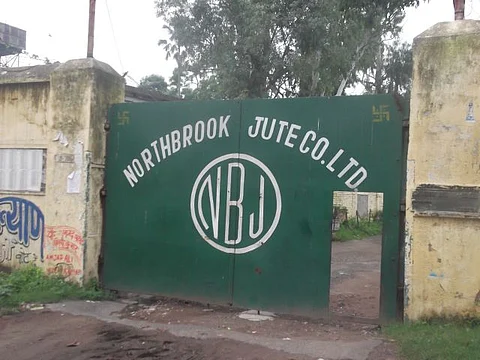

Anuradha Sharma | The News Minute | July 6, 2014 | 7.35 pm IST
Kolkata: Sanjay Kajaria, owner of three jute mills in West Bengal, has organised a puja of a different kind at his Gondalpara mill in Chandannagar, about 45 km from Kolkata. The Jute Raksha Rudra Chandi Mahayajna (grand ritual for the protection of jute) has 15 pandits and Sanskrit scholars chanting shlokas and performing pujas over five days. The objective is to get divine help, not just for Kajaria’s mills but for the entire industry, which is going through one of its worst crises.
“It is a god-forsaken industry at the moment,” says Kajaria, the former chairman of the Indian Jute Mills Association (IJMA), with the air of a man who will not leave any stone unturned.
Kajaria’s mahayajna, which began on Saturday (July 5), comes less than a month after a jute mill CEO was lynched by his workers following a proposed move to cut down working hours in the face of dwindling demand. Hari Krishna Maheshwari, the CEO of Northbrook Jute Mill, was bludgeoned to death by the agitated workers on June 15.
Kajaria’s own mills have a chequered past. In 2011, Firoz Akhtar, the assistant labour welfare officer of Gondalpara Jute Mill, was shot and stabbed to death on the factory premises by unknown assailants. Nine years before that, Subrata Chakraborty, the labour officer of another of Kajaria’s jute units, Hastings Jute Mill at Rishra, was bludgeoned to death allegedly by factory workers. Both incidents have been seen as direct result of strained management-labour relations.
That as many as six such incidents have taken place since 2001 is a tell-tale sign of the deepening crisis in the jute industry. The jute sector depends entirely on government purchases which have shrunk drastically over the years. Earlier, jute packaging was compulsory for cement, fertiliser, sugar and food grain. Cement was exempted in 1998 and fertiliser in 2001. Over the years, the mandatory jute-packaging of food grain has also been brought down to 90 per cent and of sugar to 20 per cent. Industry insiders link the shrinking of government purchases to the strong plastic lobby at work at the Centre, made worse by the weak political clout of West Bengal in New Delhi.
The state has 64 of the country’s 84 jute mills, according to the IJMA website.
An overgrown pond at the coolie lines of Northbrook jute mill
Currently, about six jute units are closed in West Bengal and labour unrest is a regular feature among many others. Diminishing of government orders has translated into exploitation of workers. Mill owners have been found guilty of defaulting on workers’ wages, provident fund and other benefits. They plead helplessness citing crisis in the industry.
Mill owners have mooted the need for a comprehensive policy on the eco-friendly jute, which is fighting a losing battle against plastic. West Bengal government has put in place three committees to look into the issues plaguing the sector and find ways of revival.
The sector needs something like Project Tiger which was started to save the wild cats and their habitats, says Kajaria. “Jute is not a commercially viable industry. Government push and patronage is required because millions of lives are dependent on it, apart from the fact that it is an environment-friendly fibre.”
According to the IJMA website, as many as 3.5 lakh workers are engaged in jute mills and about 40 lakh farmers are involved in growing raw jute.
“Bengal will be finished if the jute industry is allowed to rot like this,” says Prakash Choraria, chairman of the Punrasar Group, which owns three jute mills in West Bengal including Northbrook. “The Centre must come to the rescue. We cannot but look up to the government for a lifeline like we’ve always done.”
Meanwhile, at Gondalpara Acharya Kusheswar Jha of Sanskrit College, Kolkata, and his team are hard at work to please Goddess Durga, chanting “Sarvaa badhaa vinirmukto dhana dhaanya sutaanvitah manushyo mata prasaaden bhavishyati na sanshayah (Mother Durga can break down all obstacles and achieve all those things that humankind cannot).”